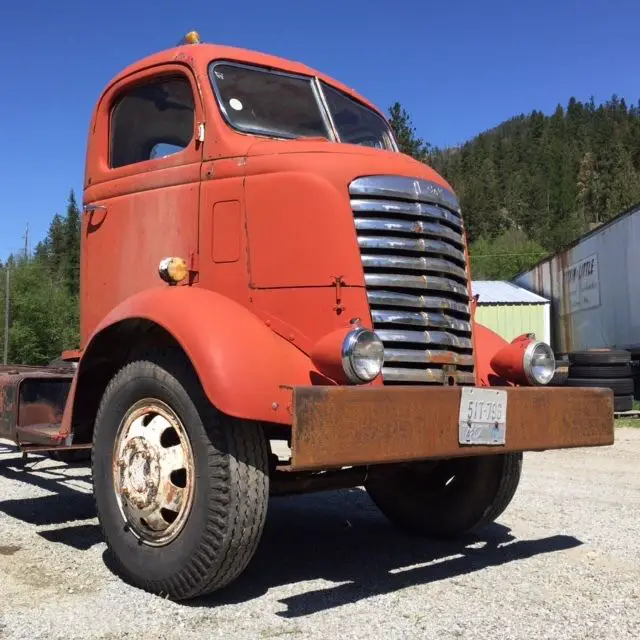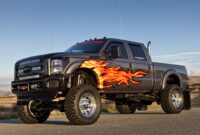Heavy Duty Trucks For Sale In California: Your Comprehensive Guide sale.truckstrend.com
California, with its vast agricultural lands, bustling ports, extensive construction projects, and a logistics network serving millions, is a powerhouse of economic activity. At the heart of this ceaseless movement are heavy-duty trucks – the workhorses that transport goods, materials, and equipment across the state’s diverse landscapes. For businesses and individuals looking to invest in these essential vehicles, understanding the unique market for Heavy Duty Trucks For Sale In California is paramount. This guide will delve deep into everything you need to know, from types and market dynamics to crucial regulatory compliance and smart buying strategies.
Understanding Heavy Duty Trucks: Categories and Applications
Heavy Duty Trucks For Sale In California: Your Comprehensive Guide
Heavy-duty trucks are generally defined as commercial vehicles weighing over 26,000 pounds Gross Vehicle Weight Rating (GVWR), falling into Class 7 and Class 8 of the North American vehicle classification system. These are not your average pickup trucks; they are purpose-built machines designed for serious hauling and specialized tasks.
Class 7 Trucks (26,001 – 33,000 lbs GVWR): These often include medium-heavy single-unit trucks like large box trucks, furniture movers, and some smaller refuse trucks. They are versatile for local and regional deliveries, often requiring a Commercial Driver’s License (CDL) depending on the specific GVWR and state regulations.
Class 8 Trucks (33,001 lbs GVWR and above): This is the realm of true heavy haulers and the most common type when people think of "heavy-duty trucks." Class 8 encompasses:
- Tractor Units (Semi-trucks): Designed to pull trailers, these are the backbone of long-haul freight and drayage operations connecting California’s ports to inland distribution centers.
- Dump Trucks: Essential for construction, hauling sand, gravel, dirt, and demolition debris.
- Concrete Mixers: Specialized vehicles for transporting and mixing concrete on job sites.
- Refuse Trucks (Garbage Trucks): Vital for waste management services.
- Heavy Haulers/Specialized Trucks: Lowboys, flatbeds, and other custom configurations for oversized loads, equipment transport, and specific industrial needs.

In California, the demand for these vehicles spans diverse sectors: agricultural transport of produce from the Central Valley, construction projects booming in urban centers, the relentless flow of goods through the ports of Los Angeles and Long Beach, and the everyday logistics of delivering everything from retail goods to industrial supplies. Each application requires a specific type of heavy-duty truck, making the selection process critical.
The California Market Landscape: What to Expect
The market for Heavy Duty Trucks For Sale In California is dynamic and robust, offering a wide array of options for buyers. Understanding where and how to search can significantly impact your purchase.

New vs. Used Trucks:
- New Trucks: Offer the latest technology, better fuel efficiency, full warranties, and immediate CARB compliance. They come at a higher upfront cost but provide peace of mind and potentially lower maintenance expenses in the initial years. Brands like Freightliner, Peterbilt, Kenworth, Volvo, Mack, and International are popular choices.
- Used Trucks: Represent a significant portion of the market, offering cost savings and a wider selection of models. However, they require more diligent inspection and careful verification of maintenance history and, most importantly, California Air Resources Board (CARB) compliance. The age and mileage of used trucks directly impact their price and potential operational lifespan.

Where to Look:
- Authorized Dealerships: For new trucks, and often certified pre-owned heavy-duty trucks, dealerships offer financing options, warranty support, and professional sales assistance. They are also well-versed in CARB regulations.
- Independent Used Truck Dealers: Many dealers specialize solely in used heavy-duty trucks, offering a broad inventory. It’s crucial to choose reputable dealers with good reviews and transparent practices.
- Online Marketplaces: Websites like TruckPaper.com, CommercialTruckTrader.com, MyLittleSalesman.com, and RitchieSpecs.com are excellent resources for browsing listings from dealers and private sellers across California and beyond.
- Auctions: Public and private auctions (e.g., government surplus, fleet liquidations) can offer opportunities for good deals, but they often require quick decision-making and a thorough understanding of truck conditions, as sales are typically "as-is."
- Private Sellers: While potentially offering lower prices, buying from private sellers requires extra caution regarding inspections, legal paperwork, and verifying CARB compliance.
Navigating California’s Regulations: CARB Compliance is Key
Perhaps the most critical consideration when buying Heavy Duty Trucks For Sale In California is compliance with the California Air Resources Board (CARB) regulations. California has the strictest emissions standards in the nation, aiming to improve air quality, particularly in heavily trafficked urban and port areas. Ignoring CARB regulations can lead to significant fines, operational restrictions, and the inability to register your vehicle.
Key CARB Regulations Affecting Heavy-Duty Diesel Trucks:
- TRU (Transport Refrigeration Unit) Regulation: Applies to diesel-powered refrigeration units on trucks, trailers, and railcars.
- Drayage Truck Regulation: Targets trucks operating at California’s major ports and intermodal railyards. These trucks must meet stringent emission standards, often requiring newer models or retrofits.
- In-Use Off-Road Diesel Vehicle Regulation: Affects diesel-powered vehicles used in construction, mining, and other off-road applications.
- Truck and Bus Regulation (Exhaust Emission Standards): This is the most comprehensive regulation for on-road diesel trucks. It requires trucks to meet increasingly stringent particulate matter (PM) and NOx emissions standards, primarily by mandating the use of newer engine technology or installing diesel particulate filters (DPFs) and selective catalytic reduction (SCR) systems. Older trucks may be phased out or face operational restrictions.
- Advanced Clean Trucks (ACT) Regulation: A groundbreaking rule aimed at accelerating the transition to zero-emission trucks. It requires manufacturers to sell an increasing percentage of zero-emission trucks (ZEV) in California, signaling a future shift towards electric and hydrogen fuel cell heavy-duty vehicles.
Actionable Insight: Before purchasing any heavy-duty truck in California, especially a used one, always:
- Verify the Vehicle Identification Number (VIN): Use the VIN to check the truck’s engine year and confirm its CARB compliance status through the ARB’s online reporting system or a knowledgeable dealer.
- Request Maintenance Records: Look for evidence of DPF cleaning, SCR system maintenance, and any emission system repairs.
- Consult with a CARB Specialist: If uncertain, seek advice from a dealer or consultant specializing in CARB compliance.
Key Considerations Before Buying
Beyond CARB, a successful heavy-duty truck purchase hinges on several practical factors:
- Budget & Total Cost of Ownership (TCO): Your budget isn’t just the purchase price. Factor in financing costs, insurance, fuel, maintenance, repairs, tires, and potential CARB compliance upgrades. A lower purchase price for an older truck might lead to higher operational costs down the line.
- Intended Use & Payload Capacity: Clearly define what the truck will be used for. Will it be long-haul, vocational, or local delivery? What kind of weight will it carry? This dictates the required engine size, axle configuration, transmission type, and body style.
- Maintenance History & Condition: For used trucks, a detailed service history is invaluable. Look for consistent maintenance, documented repairs, and a clean title. A professional pre-purchase inspection by an independent mechanic specializing in heavy-duty trucks is non-negotiable. They can identify hidden issues with the engine, transmission, brakes, suspension, and frame.
- Mileage and Engine Hours: These are crucial indicators of wear and tear. While high mileage isn’t always a deal-breaker if the truck has been well-maintained, it will impact its remaining useful life.
- Financing Options: Explore various financing avenues, including traditional bank loans, dealer financing, and specialized commercial truck lenders. Compare interest rates, loan terms, and down payment requirements. Leasing might also be an option for some businesses.
- After-Sale Support: Consider the availability of parts, authorized service centers, and technical support for your chosen truck brand in California. Downtime due to parts shortages or lack of qualified mechanics can be costly.
Tips for a Successful Purchase
- Define Your Needs Meticulously: Before you even start looking, list out the exact specifications your operation requires.
- Do Your Homework: Research different makes and models, read reviews, and understand common issues.
- Verify CARB Compliance First: Make this your absolute priority for any truck intended for use in California.
- Always Get a Professional Inspection: Do not skip this step, even if the seller provides a recent inspection report. Get your own.
- Negotiate Smartly: Be prepared to negotiate on price, but also consider factors like warranty, service agreements, or included accessories.
- Understand All Paperwork: Read the sales agreement, warranty details, and any financing documents thoroughly before signing.
- Consider Telematics: Newer trucks often come with or can be equipped with telematics systems that provide valuable data on performance, fuel efficiency, and maintenance needs, optimizing your operation.
Potential Challenges and Solutions
- High Upfront Costs: Heavy-duty trucks are a significant investment.
- Solution: Explore financing, consider well-maintained used trucks, or look into leasing options to manage cash flow.
- Navigating Complex CARB Regulations: The rules can be confusing and constantly evolving.
- Solution: Work with reputable dealers who guarantee CARB compliance, consult a CARB specialist, and prioritize newer models or those with documented emission system upgrades.
- Maintenance Expenses and Downtime: Heavy-duty trucks require specialized maintenance, which can be costly and lead to lost revenue.
- Solution: Factor maintenance into your budget, adhere to preventative maintenance schedules, and build relationships with reliable heavy-duty truck mechanics.
- Finding the Right Truck for a Niche Application: Specific jobs require specific truck configurations that might be hard to find.
- Solution: Broaden your search geographically (but always keeping CARB in mind), work with brokers, or consider custom body builders if buying a new chassis.
Sample Price Guide: Heavy Duty Trucks For Sale In California
Disclaimer: The prices below are highly approximate and subject to significant variation based on condition, mileage, features, market demand, and specific CARB compliance status. These are estimates for general guidance only.
| Truck Type / Class | New Price Range (USD) | Used Price Range (USD) | Key Features / Considerations |
|---|---|---|---|
| Class 7 Box Truck | $80,000 – $150,000 | $30,000 – $80,000 | Local/regional delivery, cargo capacity 26-33 ft, often require CDL, check liftgate condition. |
| Class 8 Day Cab (Tractor) | $120,000 – $180,000 | $40,000 – $100,000 | Short-haul, drayage, port operations. Focus on maneuverability, strong engine for heavy loads. CARB compliance for drayage is critical. |
| Class 8 Sleeper Cab (Tractor) | $150,000 – $250,000 | $60,000 – $150,000 | Long-haul freight. Consider cabin amenities, fuel efficiency, mileage. Higher mileage used trucks common. |
| Class 8 Dump Truck | $180,000 – $300,000 | $70,000 – $180,000 | Construction, material hauling. Assess frame integrity, bed condition, hydraulics. Often high engine hours. |
| Class 8 Concrete Mixer | $250,000 – $400,000 | $90,000 – $250,000 | Specialized vocational. Inspect drum, mixer mechanics, and frame for stress. |
| Class 8 Refuse Truck | $300,000 – $500,000 | $100,000 – $300,000 | Vocational, municipal/private waste. Complex hydraulic systems, high wear and tear. |
Frequently Asked Questions (FAQ)
Q1: What is considered a heavy-duty truck in California?
A1: Generally, trucks with a Gross Vehicle Weight Rating (GVWR) of over 26,000 pounds (Class 7 and Class 8) are considered heavy-duty.
Q2: Why are CARB regulations so important when buying a truck in California?
A2: CARB regulations are crucial because they dictate emissions standards. Non-compliant trucks cannot be legally registered or operated in California, leading to significant fines and operational restrictions.
Q3: Can I buy an out-of-state heavy-duty truck and register it in California?
A3: Yes, but it must meet California’s stringent emissions standards (50-state legal). Simply meeting federal standards is not enough. Always verify CARB compliance before purchasing an out-of-state truck.
Q4: What’s the average lifespan of a heavy-duty truck?
A4: With proper maintenance, a heavy-duty truck can last over 1,000,000 miles or 15-20 years. However, individual components like engines and transmissions may require overhauls or replacements along the way.
Q5: Should I buy a new or used heavy-duty truck in California?
A5: It depends on your budget, operational needs, and risk tolerance. New trucks offer reliability and guaranteed CARB compliance at a higher cost. Used trucks offer savings but require thorough inspection and careful CARB verification.
Q6: How do I finance a heavy-duty truck?
A6: You can finance a heavy-duty truck through traditional banks, credit unions, dealership financing, or specialized commercial truck lenders. Terms vary based on your creditworthiness, the truck’s age, and the loan amount.
Conclusion
The journey to acquiring Heavy Duty Trucks For Sale In California is a significant investment, demanding careful research, due diligence, and a clear understanding of the state’s unique regulatory environment. By thoroughly assessing your needs, diligently checking for CARB compliance, conducting comprehensive inspections, and understanding the total cost of ownership, you can make an informed decision that drives your business forward. Whether you opt for a brand-new hauler or a well-maintained used workhorse, the right heavy-duty truck will be a powerful asset in California’s vibrant and demanding economy.




